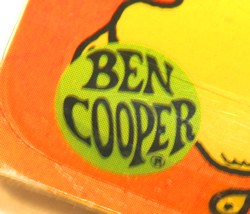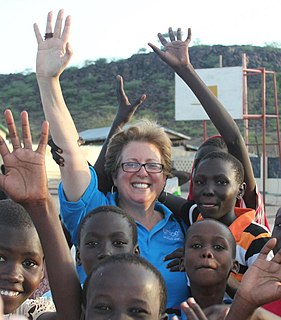
Halloween or Hallowe'en, less commonly known as Allhalloween, All Hallows' Eve, or All Saints' Eve, is a celebration observed in many countries on 31 October, the eve of the Western Christian feast of All Hallows' Day. It begins the observance of Allhallowtide, the time in the liturgical year dedicated to remembering the dead, including saints (hallows), martyrs, and all the departed.

Trick-or-treating is a traditional Halloween custom for children and adults in some countries. In the evening before All Saints' Day, children in costumes travel from house to house, asking for treats with the phrase "Trick or treat". The "treat" is usually some form of candy, although in some cultures money is given instead. The "trick" refers to a threat, usually idle, to perform mischief on the homeowner(s) or their property if no treat is given. Trick-or-treating usually occurs on the evening of October 31. Some homeowners signal that they are willing to hand out treats by putting up Halloween decorations outside their doors; others simply leave treats available on their porches for the children to take freely. Houses may also leave their porch light on as a universal indicator that they have candy.
A telethon is a televised fundraising event that lasts many hours or even days, the purpose of which is to raise money for a charitable, political or other purportedly worthy cause.

Spencer Gifts LLC, doing business as Spencer's, is a North American mall retailer with over 600 stores in the United States and Canada. Their stores specialize in novelty and gag gifts, and also sell clothing, band merchandise, sex toys, room decor, collectible figures, fashion and body jewelry, fantasy and horror items. The company also owns and operates a pop-up seasonal retailer, Spirit Halloween.

St. Jude Children's Research Hospital, founded in 1962, is a pediatric treatment and research facility focused on children's catastrophic diseases, particularly leukemia and other cancers. The hospital costs about US$2.8 million a day to run, but patients are not charged for their care. It is located in Memphis, Tennessee, and is a nonprofit medical corporation designated as a 501(c)(3) tax-exempt organization by the Internal Revenue Service. St. Jude treats infants, children, teenagers, and young adults up to the age of 21, and in some cases, up to the age of 25.

Latter-day Saint Charities is a branch of the welfare department of The Church of Jesus Christ of Latter-day Saints. The organization's stated mission is to relieve suffering, to foster self-reliance for people of all nationalities and religions, and to provide opportunities for service.
Coinstar, LLC is an American company operating coin-cashing machines. On September 27, 2016, Apollo Global Management, LLC acquired Outerwall, Inc. for $52.00 per share in cash. After the acquisition, former components of Outerwall, Redbox, Coinstar, and ecoATM became separate business entities.

Trick 'r Treat is a 2007 American anthology horror comedy film written and directed by Michael Dougherty and produced by Bryan Singer. The film stars Dylan Baker, Rochelle Aytes, Anna Paquin and Brian Cox. It relates four Halloween horror stories with a common element in them: Sam, a trick-or-treater wearing orange footie pajamas with a burlap sack over his head. The character makes an appearance in each of the stories whenever one of the other characters breaks a Halloween tradition.
The U.S. Fund for UNICEF, doing business as UNICEF USA, is a non-profit, non-governmental organization (NGO) in the United States that supports the United Nations Children's Fund (UNICEF). Founded in 1947 by Helenka Pantaleoni, it is the oldest of the 36 UNICEF National Committees that support UNICEF worldwide through fundraising, advocacy and education. Since its inception, the U.S. Fund has provided UNICEF and various NGOs with $6.3 billion in cash and gifts-in-kind.

UNICEF, also known as the United Nations Children's Fund, is a United Nations agency responsible for providing humanitarian and developmental aid to children worldwide. The agency is among the most widespread and recognizable social welfare organizations in the world, with a presence in 192 countries and territories. UNICEF's activities include providing immunizations and disease prevention, administering treatment for children and mothers with HIV, enhancing childhood and maternal nutrition, improving sanitation, promoting education, and providing emergency relief in response to disasters.

A candy pumpkin is a small, pumpkin-shaped, mellow crème confection primarily made from corn syrup, honey, carnauba wax, chocolate, and sugar. Traditionally colored with an orange base and topped with a green stem to make candy pumpkins largely identifiable with Halloween, a candy pumpkin is considered a mellow crème by confectioners since the candy has a marshmallow flavor. Sometimes called candy corn's first cousin, candy pumpkins are made through a starch casting process similar to that for candy corn. Brach's candy pumpkin, known by the trademarked name "Mellowcreme Pumpkin," is the most popular candy pumpkin. Brach's Confections is now owned by Farley's & Sathers Candy Company.

Halloween, a contraction of "All Hallows' Eve", is a celebration observed on October 31, the day before the feast of All Hallows', also known as Hallowmas or All Saint's Day. The celebrations and observances of this day occur primarily in regions of the Western world, albeit some traditions vary significantly between geographical areas.

The response to the 2010 Haiti earthquake included national governments, charitable and for-profit organizations from around the world which began coordinating humanitarian aid designed to help the Haitian people. Some countries arranged to send relief and rescue workers and humanitarian supplies directly to the earthquake damage zones, while others sought to organize national fund raising to provide monetary support for the nonprofit groups working directly in Haiti. OCHA coordinates and tracks this on a daily basis. The information is disseminated through the UN news and information portal, ReliefWeb. As of September 5, 2013, ReliefWeb have reported a total relief funding of $3.5 billion given.
This article describes humanitarian responses from "for-profit" organizations, such as business corporations, following the January 12, 2010, earthquake in Haiti.

Ben Cooper, Inc. was a privately held American corporation which primarily manufactured Halloween costumes from the late 1930s to the late 1980s. It was one of the three largest Halloween costume manufacturers in the U.S. from the 1950s through the mid-1980s. The company's inexpensive plastic masks and vinyl smocks were an iconic American symbol of Halloween from the 1950s to the 1970s, for which Cooper has been called the "Halston of Halloween" and the "High Priest" of Halloween.
Mary Emma Allison was an American school librarian who co-created Trick-or-Treat for UNICEF in 1950. Her three children were the initial participants in the fund raising effort, which by the time of her death had brought in $160 million to be used for the benefit of needy children around the world.
GoFundMe is an American for-profit crowdfunding platform that allows people to raise money for events ranging from life events such as celebrations and graduations to challenging circumstances like accidents and illnesses. From 2010 to the beginning of 2020, over $9 billion has been raised on the platform, with contributions from over 120 million donors.

Caryl M. Stern is an American author, child advocate, civil and human rights activist, and non-profit executive.

UNICEF Canada, also known as the Canadian National Committee for UNICEF, is one of 36 UNICEF National Committees based in industrialized countries. UNICEF is a child-focused humanitarian organization, working in over 190 countries.
South Korean boy band BTS are known for their philanthropic endeavors. Multiple members of the band have been inducted into prestigious donation clubs, such as the UNICEF Honors Club and the Green Noble Club, in acknowledgement of the size and frequency of their donations. They have also received awards for their donations, with one member receiving a Patron of the Arts Award for donations to the arts, and BTS as a whole receiving a UNICEF Inspire Award for their Love Myself campaign. They often donate privately, with their patronage later being made public by the organizations they support and the media. The band's efforts have motivated their fans to also engage in various charitable and humanitarian activities, and on occasion even match their donations.












